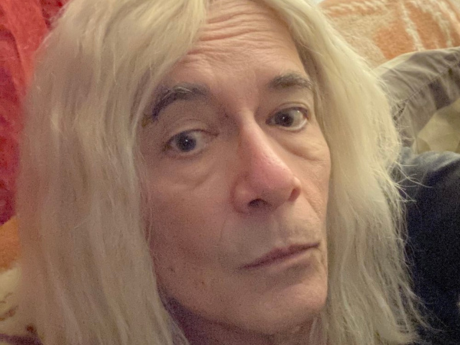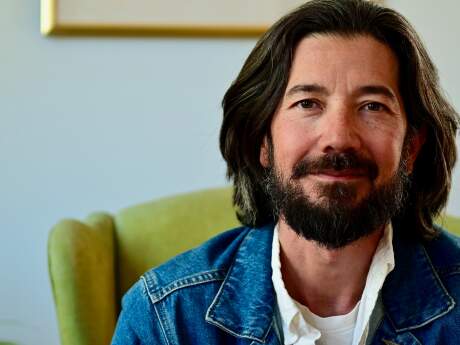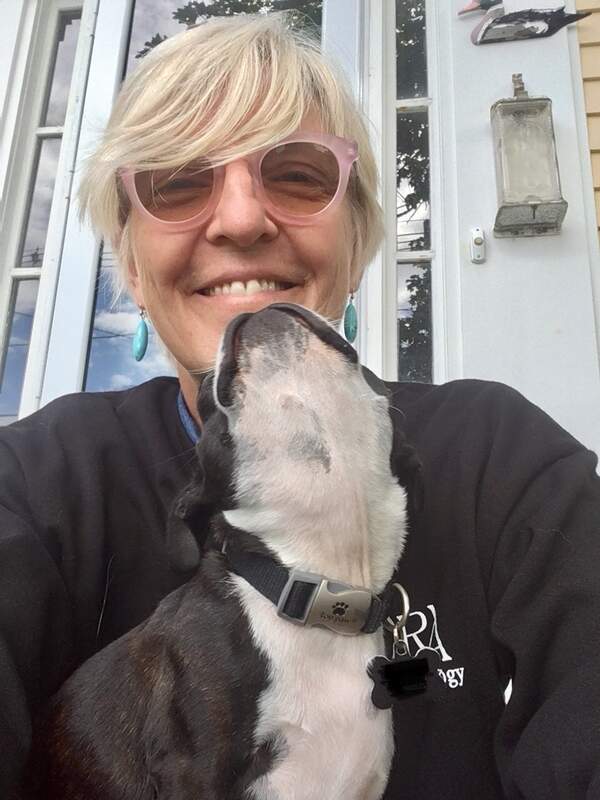Stopping By
Stopping by with Lucy Sante

Lucy Sante was born in Verviers, Belgium, and now lives in the Hudson River Valley. Her books include Low Life, Evidence, The Factory of Facts, Kill All Your Darlings, The Other Paris, Maybe the People Would Be the Times, Nineteen Reservoirs, and most recently, I Heard Her Call My Name: A Memoir of Transition. She has written for many periodicals, notably the New York Review of Books since 1981. Her honors include a Whiting Writer's Award, an Award in Literature from the American Academy of Arts and Letters, a Grammy (for album notes), an Infinity Award from the International Center of Photography, and Guggenheim and Cullman fellowships. Since 1999 she has taught writing and the history of photography at Bard College.
What's something you recently read, saw, watched, or listened to that moved you?
Gavin Lambert's Hollywood fiction: the short-story collection The Slide Area (1959) and the novels Inside Daisy Clover (1963) and The Goodby People (1971). Spare, crackling stories of conflicted lives in and around Tinseltown. You can tell he was a scriptwriter (Sons and Lovers, The Roman Spring of Mrs. Stone): the scenes are chiseled, measured, perfectly timed, and the dialogue is always on point. You can also tell he was British, with the expat's gimlet eye.
What's a poem or book that changed or greatly influenced your life? Why/how?
The first adult book I read, age 11, swiped from my father's shelves, was The Guns of August
by Barbara Tuchman. I'm not sure why, although the events of August 1914 were part of the family narrative. In any case I was knocked sideways by the first chapter, an account of the funeral of Edward VII in 1910, the last time the crowned heads of Europe were all gathered together. I had been reading in black and white all my life, and suddenly I was reading in technicolor. Tuchman invents nothing, but weaves together accounts from many sources into a spectacular set piece, a sort of litany of uniforms and decorations and dueling scars and attitudes and histories, like a movie that Luchino Visconti could have made with a comics-franchise budget. Tuchman was a tremendous writer, who in some ways has not been given her due, perhaps because of territorial grumblings from the historian lobby.
What's your first memory of poetry?
The Fables of La Fontaine, a number of which my father recited from memory on any pretext. They certainly taught me the music of language very early. “Tout flatteur vit aux dépens de celui qui l'écoute” (“A flatterer lives at the expense of those who listen to him“)—the moral of “The Fox and the Crow.”
Do you have a morning routine? What is it?
No, I don't.
What do you want people to take away from your latest memoir, I Heard Her Call My Name?
Many things: Who I am. How I came to be where I am now. How transness manifested itself in my life, and how I suppressed it for some sixty years. How being trans is not a will-o'-the-wisp or a fad. How knowledge of one's transness can occur when very young, in the absence of any prior knowledge, and fail to go away despite every kind of effort to get rid of it. How acknowledgment brings serenity, even despite societal pressures.
Are you working on anything new you can tell us about?
My current contract was originally for a biography of Lou Reed, which I was guided into by others despite my better judgment, temporarily dazed by a vision of lucre. Soon the despair set in, however, for a number of reasons beginning with the fact that I never wanted to be anyone's biographer. But transitioning came to my rescue. Thanks to my brilliant long-time agent, Joy Harris, I was able to swap that tome for two others: the memoir that has just been published and—maintaining the Lou connection—a book about the Velvet Underground in their time. It will be about the band, and will also fill out the setting, the characters, the cross-currents of influence that weren't only musical—it will really be a book about New York City in the 1960s.
What's an additional talent you secretly wish you had?
I've always wanted to sing. I have an unremarkable country & western baritone.


